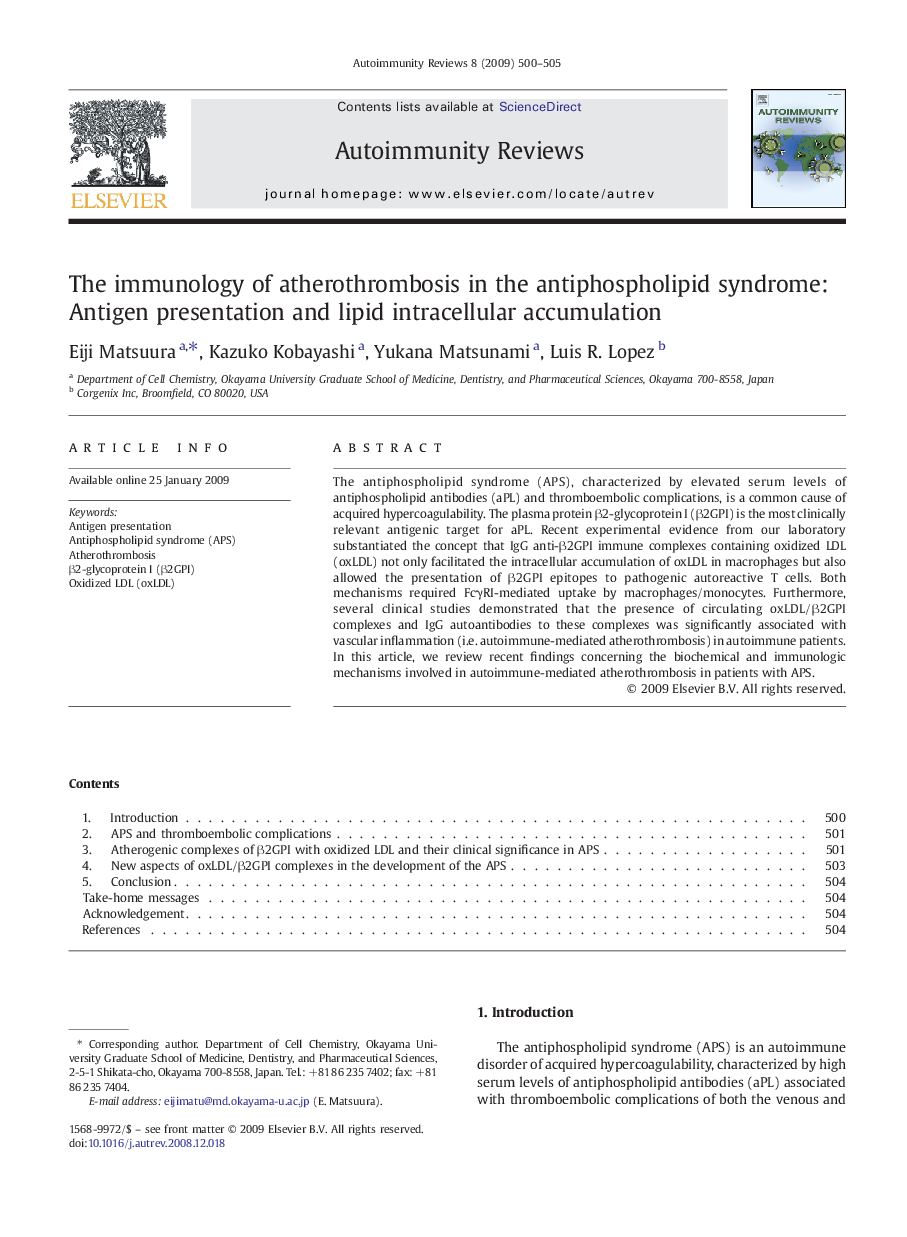| کد مقاله | کد نشریه | سال انتشار | مقاله انگلیسی | نسخه تمام متن |
|---|---|---|---|---|
| 3342362 | 1214281 | 2009 | 6 صفحه PDF | دانلود رایگان |

The antiphospholipid syndrome (APS), characterized by elevated serum levels of antiphospholipid antibodies (aPL) and thromboembolic complications, is a common cause of acquired hypercoagulability. The plasma protein β2-glycoprotein I (β2GPI) is the most clinically relevant antigenic target for aPL. Recent experimental evidence from our laboratory substantiated the concept that IgG anti-β2GPI immune complexes containing oxidized LDL (oxLDL) not only facilitated the intracellular accumulation of oxLDL in macrophages but also allowed the presentation of β2GPI epitopes to pathogenic autoreactive T cells. Both mechanisms required FcγRI-mediated uptake by macrophages/monocytes. Furthermore, several clinical studies demonstrated that the presence of circulating oxLDL/β2GPI complexes and IgG autoantibodies to these complexes was significantly associated with vascular inflammation (i.e. autoimmune-mediated atherothrombosis) in autoimmune patients. In this article, we review recent findings concerning the biochemical and immunologic mechanisms involved in autoimmune-mediated atherothrombosis in patients with APS.
Journal: Autoimmunity Reviews - Volume 8, Issue 6, May 2009, Pages 500–505